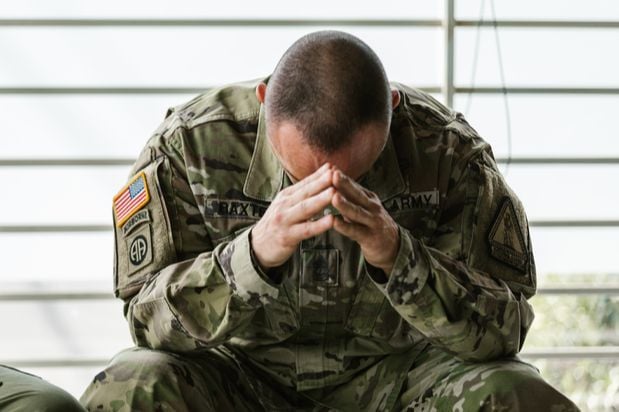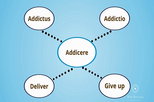The prevalence of co-occurring psychiatric disorders is a growing concern among veterans. It’s necessary to understand the factors that contribute to its development.
The developmental factors for dual diagnoses in returning veterans are two. These are post-traumatic stress disorder (PTSD) and substance use disorder (SUD). Factors contributing to the rise of PTSD and SUD, include:
- Lack of resources available to help them lead healthy lives
- Stigma and discrimination they face
- Lack of social support
Dual diagnosis is an umbrella term that refers to a person with PTSD and SUD. NESARC-III estimates that about 46.4 % of veterans with PTSD also have substance use disorder. Individuals who have both disorders also experience severe functional impairment.
Veterans are often vulnerable to traumatic events. They experience difficulties adjusting to civilian life after returning from their service. Society often misunderstands vets with dual diagnoses, and it’s time to change that.
This article discusses both PTSD and SUD among veterans. The article also provides solutions to these disorders. These solutions can help veterans live meaningful and fulfilling lives.
What is PTSD and Its Effect on the Brain?
PTSD is a type of anxiety disorder that can occur after you experience a traumatic event. It affects people differently depending on several factors. some of these factors are age, gender, and the severity of the trauma an individual has experienced.
Post-traumatic stress disorder symptoms lead to increased alcohol consumption. It also causes anxiety-related drug use to ease the condition.
People with PTSD experience the following symptoms:
- Flashbacks, nightmares, and hyper-vigilance
- Difficulty sleeping
- Irritability or anger
- Inability to concentrate
- Feeling detached from others
If you’re a veteran with PTSD, you may experience flashbacks or nightmares. These nightmares can cause you to have physical reactions. Reactions may include sweating, shaking, or having a difficult time breathing.
Traumatic events, such as combat or being in a war zone, trigger nightmares. When this happens, the brain releases adrenaline and cortisol into the bloodstream.
This helps the individual prepare for danger. Unfortunately, these hormones cause night terrors and flashbacks. These effects manifest even if the veterans can't recall the actual events. The symptoms can lead to substance abuse or self-harm behaviors.
Mental Health and Substance Use Disorder Among Veterans
Substance use disorders coupled with mental illnesses like PTSD are common among veterans. Environmental factors like drug abuse, violence exposure, discrimination, and trauma can cause SUDs.
Vets with substance use disorders often struggle with mental health issues. Unfortunately, they also experience more challenges in finding work. They also receive less support from their communities.
It's important to be aware of the signs of substance abuse in veterans. Understanding these signs can help in finding help when struggling with SUD. Some signs to watch for are:
- Increased irritability
- Difficulty focusing during the day
- Sudden changes in sleeping habits such as insomnia or sleeping for long periods
- High cravings for drugs or alcohol
PTSD Treatments Available
There are many treatment options available for PTSD. Most of these treatments are available through the Veterans Administration. But the treatments vary depending on the type of trauma experienced and how severe it was. It is important to speak with your doctor about a treatment plan to find the best option.
The most common treatment for PTSD is cognitive processing therapy. This treatment helps veterans work through their thoughts and feelings about the traumatic event. This method comes in handy to reduce distress.
Other treatments for PTSD involve pharmacological interventions, such as psychodynamic therapy.
SUD Treatment Options
Substance use disorder treatment helps to address the underlying causes of addiction. Treatment options can include:
Dual diagnosis treatment: This treatment helps manage your mental health and substance use disorder simultaneously
Therapy techniques such as:
- Cognitive-behavioral therapy
- Motivational enhancement therapy
- Contingency management
- Relapse prevention
- Drug & alcohol detox
- Family therapy
- Acceptance and commitment therapy
Complementary therapies such as:
- Mindfulness-based stress reduction (MBSR)
- Acupuncture
- Massage therapy
- Yoga
Developmental Solutions for PTSD and SUD Recovery
The California Department of VA healthcare system has medical facilities that offer PTSD and SUD treatments. In addition, the facilities offer various programs and services that help the veterans get better.
The rise in PTSD and SUD recovery stem from developmental solutions such as:
- More research on trauma-informed care and treatment for veterans
- Increased funding for initiatives focused on supporting veterans with dual diagnoses
- A high number of organizations providing support for veterans with dual diagnoses
- The increased availability of mental health professionals and therapists
- More awareness of the symptoms of PTSD, SUD, and their co-occurrence
It's Time to Help Our Military Veterans Heal
Veterans commit to protecting our freedom. We need to honor their service. We can do this by expediting their transition from military service to civilian life.
Veterans returning from the battlefield face many challenges. They should receive the support they need to reintegrate back into society. But, first, they need to recover from their trauma, which is not easy.
Failing to recover from these traumas leads to co-occurring psychiatric disorders. The truth is that many vets with dual diagnoses struggle to find employment. Unfortunately, civilians worsen their situation.
Veterans deserve quality health care and a smooth transition to civilian life. They can smoothly transition through education, job placement, and transitional services. We need to make it easier for them to become productive members of society.
It's time we send a message and do our best to support our veterans on their transition journey.








